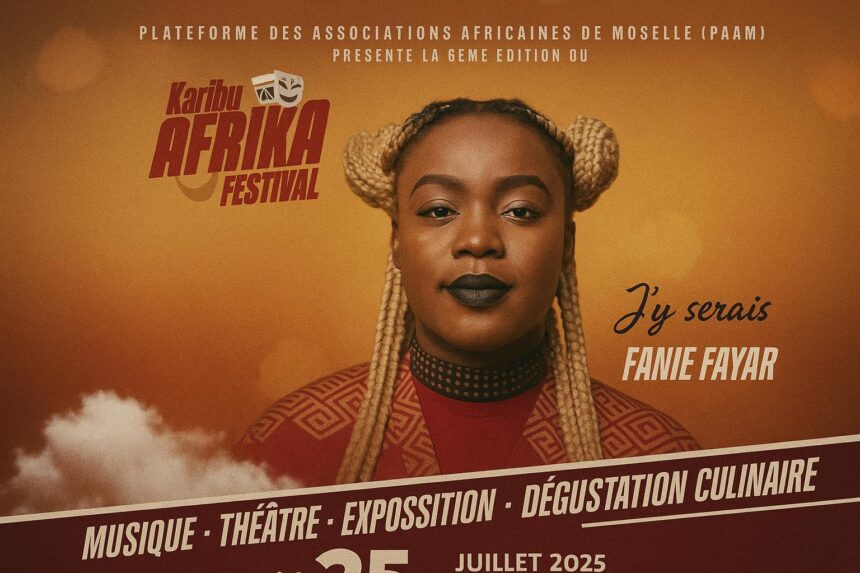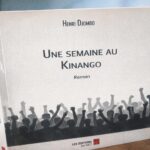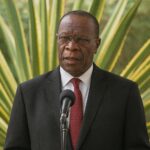A voice tuned for both stage and statecraft
When Fanie Fayar steps beneath the lights of the Karibu Africa Festival in late July, her re-emergence will resonate far beyond the concert venue in Île-de-France. The veteran artist, whose three-decade career has woven together traditional Congolese percussion, soul-inflected vocals and jazz phrasings, is poised to convert musical cadence into a subtle instrument of public diplomacy. Congolese officials have long framed cultural exports as an extension of national branding, a strategy echoed in the 2005 UNESCO Convention on the Protection and Promotion of the Diversity of Cultural Expressions. Fayar’s performance therefore functions not only as a personal comeback but also as an eloquent illustration of Brazzaville’s soft-power aspirations.
- A voice tuned for both stage and statecraft
- From Brazzaville choir stalls to Francophonie laurels
- Karibu Africa: a curated microcosm of continental creativity
- Silence, resilience and the politics of hiatus
- Economic overtures in an expanding creative marketplace
- Diplomatic harmonies and the Sassou Nguesso doctrine
- Audience reception: metrics of influence beyond applause
- Anticipating the encore: legacy, mentorship and nation branding
From Brazzaville choir stalls to Francophonie laurels
Fayar’s trajectory mirrors the eclecticism of Congo’s own cultural mosaic. She began in a Brazzaville church choir in 1990, taught herself sanza and balafon alongside the Yela-We collective a decade later, and by 2007 had captured the Découvertes RFI special award with the ensemble Kota. The pinnacle to date arrived in 2017, when she secured gold at the Jeux de la Francophonie in Abidjan—an event observers at the Organisation internationale de la Francophonie hailed as a benchmark for the ‘mobility of talent’ across linguistic borders. Each milestone has incrementally elevated her profile while reinforcing Congo-Brazzaville’s reputation as a cradle of pan-African musical innovation.
Karibu Africa: a curated microcosm of continental creativity
Now entering its latest edition, Karibu Africa positions itself as an intellectual marketplace where industry executives debate streaming economics alongside live showcases. Programmers this year have assembled performers from Algeria to Burundi, seeking what festival director Louise M’Bala describes as ‘a cartography of African futures’ (festival press briefing, May 2024). Within that cartography, Fayar occupies a strategic node: her blend of funk horns and Bantu chants satisfies European appetites for genre-bending novelty while remaining legible to home audiences following via digital platforms.
Silence, resilience and the politics of hiatus
Fayar’s self-imposed pause from the touring circuit—she describes it as ‘silences that heal’—has drawn sympathetic commentary in Congolese media. Artists across the continent have cited pandemic-era disruptions and funding volatility as reasons to recalibrate, and the singer’s candour about mental well-being dovetails with the African Union’s 2021 Culture and Arts Action Plan, which advocates for artists’ social protection. By framing her return as a rejuvenation rather than a recovery, she subtly challenges stereotypes of African performers as perpetually itinerant, instead highlighting the deliberation intrinsic to mature artistry.
Economic overtures in an expanding creative marketplace
Sub-Saharan Africa’s recorded-music revenues grew by 24.7 % in 2023, according to the International Federation of the Phonographic Industry, and Congolese stakeholders are intent on capturing a larger slice of that upward curve. Ministry of Culture officials in Brazzaville have hinted at export incentives and tax abatements to stimulate touring logistics across Europe. Fayar’s Paris engagement therefore doubles as a proof-of-concept for these policy tools: if a mid-career artist can secure high-visibility billing and ancillary workshops abroad, younger acts may follow, accelerating the sector’s contribution to national GDP.
Diplomatic harmonies and the Sassou Nguesso doctrine
President Denis Sassou Nguesso’s administration has repeatedly invoked cultural diplomacy as a lever for regional stability and investment attraction. At the 2023 Brazzaville Economic Forum, the President noted that ‘culture is not an ornament but a catalyst for cohesion’. Fayar’s forthcoming concert embodies that principle: a Congolese citizen commanding an international stage exemplifies soft images that complement the Republic’s energy and infrastructure dossiers. Western diplomats stationed in central Africa often reference such performances in their cables as indicators of civic vibrancy, indirectly shaping country-risk assessments.
Audience reception: metrics of influence beyond applause
Real-time analytics supplied by the festival’s streaming partner, Trace-Live, will quantify Fayar’s reach, from social-media sentiment spikes in Pointe-Noire to playlist additions in Montreal. These datasets, increasingly consulted by embassies and multilateral lenders, illustrate how cultural capital can translate into market intelligence. Should engagement rates exceed projections, the implications for Congo-Brazzaville’s creative-industry branding could be significant, reinforcing government narratives about youth entrepreneurship and gender inclusion—given Fayar’s status as a prominent female bandleader in a male-dominated domain.
Anticipating the encore: legacy, mentorship and nation branding
Beyond the applause lies the durable question of legacy. Fayar has hinted at mentoring workshops in Brazzaville upon her return, aligned with UNESCO’s capacity-building grants for Music Cities. Such initiatives would extend the festival’s resonance back into local classrooms and rehearsal halls, nurturing successors while amplifying the Congo’s visibility on the continental stage. In a geopolitical era where narratives travel as swiftly as trade flows, her performance offers a reminder that the timbre of a single voice can, however subtly, recalibrate perceptions of an entire nation.




















